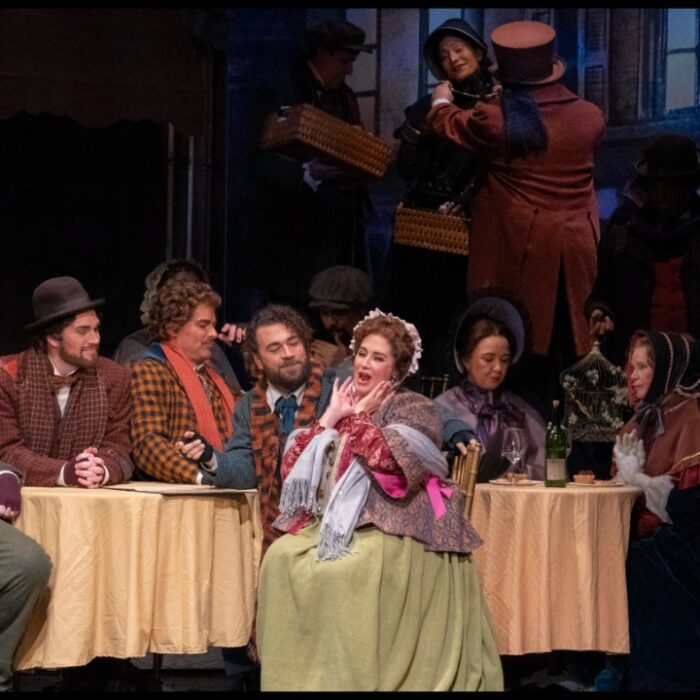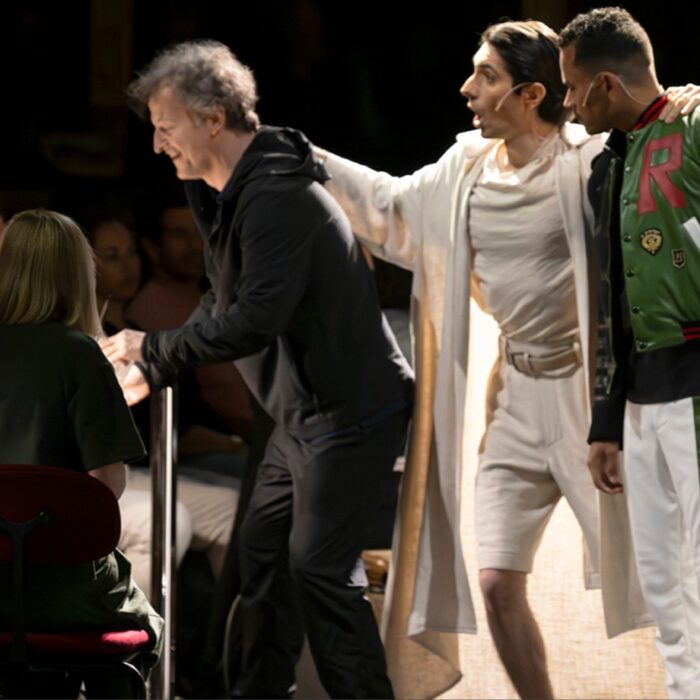
Criticism on Fridays: The End of the Year
Layoffs, Pay Cuts, Immature Digitalization, and Other Dismal Results
By Polina Lyapustina(Photo: David Beale)
Every Friday, Polina Lyapustina delivers a short essay on some of the most sensitive topics in the industry with the intent of establishing a dialogue about the opera world and its future. The choice of topics discussed, how they are researched, and how they are portrayed is conducted independently of OperaWire’s editors.
With the end of the year approaching, we all strive to sum up the results. After a nervy October, confusing and disappointing November, December arrives in style.
Suddenly, the industry in crisis doesn’t look “so bad.”
The Met Opera is active in showering us with hits and festive specials. Theaters around the world are announcing new seasons. And numerous Holiday recitals are coming soon. The Teatro alla Scala just opened with a bang and the Teatro San Carlo di Napoli started its streaming program. And that’s just the tip of an iceberg that has seen other European theatres experiment with “live” streaming, provoking us with something truly unexpected like “La Bohème” with Jonas Kaufmann as Rodolfo. And of course, we can’t overlook the work done by independent opera companies, arguably the greatest pioneers of the operatic digital world.
The show goes on, indeed.
But if we look just a little closer, I’m afraid the season has lost all of its festive attributes.
Despite streaming big stars in their signature roles almost every night, the Met Opera isn’t earning as much as needed. Its live concert series returns next week, showcasing a performance by Bryn Terfel with a program of traditional holiday hits. But fewer people watch it every time, and the Met’s extensive base’s online presence is now set to compete with free streamings and Netflix. And it’s obviously defeated. No money means no support for workers. And as weeks pass, we’ve seen tensions flare up as the company enters a new phase in its labor dispute with several unions, asking for 30 percent cuts. In the most recent development, stagehands have been locked out. This has drawn the ire of Met Opera Orchestra members and AGMA, among other organizations, all stating that the company is “using this pandemic to its own benefit to lower worker pay and eliminate conditions at work for perpetuity under the guise of short-term financial assistance that may not even last until performances can once again reopen.”
Meanwhile, another major player of NY cultural life, the New York Philharmonic, agreed to a 25 percent pay cut until 2024, allowing us a chance to evaluate the effectiveness of this policy in practice.
When numerous stars announced their Holiday recitals “at home” in various theatres around the globe, I wonder how many of them will involve other musicians, chorus, and orchestra members in their festive activities. Today star singers could potentially give jobs to those who cannot live a year in peace on a fee for one performance. But of course, that’s still a small percentage of the major artists around the world.
Another bright example of the “stars only” approach was shown by Teatro alla Scala, where Riccardo Chailly conducted a truly epic gala featuring the highest-ranked singers only: Ildar Abdrazakov, Roberto Alagna, Carlos Álvarez, Piotr Beczala, Ludovic Tézier, Lisette Oropesa, Sonya Yoncheva, and many others — the whole list would take a third of this column. Fancy dresses, and tremendous video projections at the back. But what’s with music? Was there any true operatic substance behind this show? Once you took the time to get past the excitement of seeing so many stars on one stage, it was hard to be completely satisfied with the quality of the gala. In times of large-scale industry crisis, this was an example of La Scala essentially turning its back to the musicians and community in favor of retaining its Dec. 7 tradition with glitz and glam. This didn’t come off so much as a celebration of opera and the resilience of the opera world, but of La Scala. Blinding with splendor, it hasn’t lifted culture from its knees an inch. We all surely need some cheers and happiness, but can we dance on coffins?
Another Italian theatre — Teatro San Carlo di Napoli started its streaming program last week. Open for everyone and surely affordable (I was charged 1,19 €) that might or might not support the theatre a little more. The orchestra is stunning, the cast is unbelievable. But San Carlo simply couldn’t manage the technical aspects of the streaming, so the absolutely astonishing performance of “Cavalleria Rusticana” started with a video that continuously lagged, until it was eventually interrupted and restarted, losing at least 4,000 viewers in its initial “live” stream.
The technical issues affect the opera industry more than ever before. The smaller companies starting to experiment cannot yet afford the help of high-tier video production companies. And the sound quality is often the first victim of such attempts. Unintentional neglect of a key factor scares off new audiences and often ruins excellent ideas of new productions. But, as it happens in smaller communities, bug fixing and discussions take place almost immediately, and I believe the new criteria for filming will be formed soon. The mistakes at this stage never mean failure and allow artists to remain proud of their work; accepting this fact is the key to effective improvements and growth.
The year 2020 showed us a divided industry. Every man for himself and no refunds (for many employees that is). Smaller companies with bigger ideas, still trying to uncover the secrets of the art form vs. major houses trying to pay their exorbitant debts while putting the lives of many of its ensemble and staff members on hold. Each plays by its rules, and no one is a villain.
But the most influential fact is hidden behind the curtains and muffled by loud announcements — none of them will survive without the support of the audience. Whether you pay or not, you make a difference every time you attend, donate, or simply watch. And there’s a lot to improve in the opera world. But first, we need to survive another winter of the industry crisis. Will we?
Let’s talk about it in the first spring issue.


